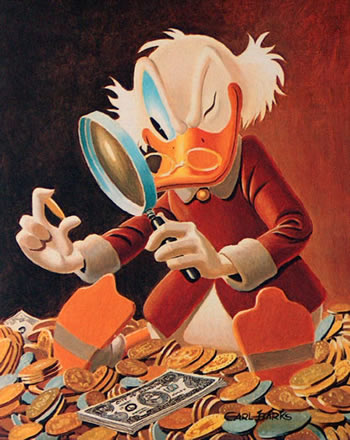 WHAT THEY TRADED: Nathanael West
WHAT THEY TRADED: Nathanael WestHe changed his name when he turned 23, taking Horace Greely's advice to "Go west, young man." Then he went east to France and wrote a novel called "The Dream Life of Balso Snell."
Here is what "The Dream Life of Balso Snell" is about: a dude sneaks into the putrefying corpse of the Trojan Horse and meets a lot of other writers hiding in there, all trying to tell stories and write fiction. Balso Snell listens to each of these writers and then dismisses their ambitions one by one, telling them that what they are doing is bullshit and that they should give up. Two publishers rejected West's first novel and then William Carlos Williams gave it a good review and so 500 copies were printed which no one ever read.
Here is what West did to avoid being homeless when the Great Depression hit: he got a job managing a hotel, letting other writers stay there for cheap and for free, including Lillian Hellman and Dashiell Hammett. Lillian Hellman's nickname for Nathanael West was "Pep West" because he was so uncoordinated and unathletic.
Lillian Hellman: "Dash wrote The Thin Man at the Sutton Hotel. Pep West's uncle or cousin owned it, I think... Dash had the Royal Suite -- three very small rooms. And we had to eat there most of the time because we didn't have enough money to eat anyplace else. It was awful food, almost spoiled. I think Pep brought it extra cheap. But it was the depression and I couldn't get a job. I remember reading the manuscript of The Dream Life of Balso Snell in the hotel. And I think he was also writing Miss Lonelyhearts at that time."
"Miss Lonelyhearts," West's second novel, is the story of a deeply depressed New York newspaper columnist who gets assigned to write the self-help section by his blackhearted editor. Between benders and bar brawls, he is forced to answer people's letters of despair in the voice of a sunshiny, hope-filled middle aged lady. He starts to have a deep, soul-shaking religious conversion. Then, the unnamed columnist is murdered by a jealous husband who decides the columnist has been fucking his wife.
Next, West wrote a novel called "A Cool Million" about how it is impossible to make a million dollars.

Neither "A Cool Million" nor "Miss Lonelyhearts" were popular, but Hollywood decided they could make something out of "Miss Lonelyhearts," so West went west after all, working on a film version of his novel that would later be released as "Advice to the Lovelorn," starring Lee Tracy.
From Wikipedia:
"...["Miss Lonelyhearts"] became a comedy/drama about a hard-boiled reporter who becomes popular when he adopts a female pseudonym and dispenses fatuous advice. He agrees (for a hefty payment) to use the column to recommend a line of medicines, but finds out they are actually harmful drugs when his mother dies. He then agrees to help the police track down the criminals. The movie ends with the main character happily married."
The movie was an abysmal failure.
After the box office disaster of "Advice to the Lovelorn," West was too broke to leave Hollywood, so he stuck around as a homeless outcast for several years until he got a job working as a scriptwriter. All the movies he made were terrible. Shit called "Let's Make Music" and "Follow Your Heart." Movies that were supposed to make people happy while the world economy burned to the ground. He did write a movie called "Born to Be Wild," which later became a song by "Steppenwolf."
West's "Born to be Wild" is about two maniac truck drivers hauling dynamite across America to blow up a dam.
While working in Hollywood, West also wrote his final novel, "The Day of the Locust." It is about a Hollywood scene painter who falls in love with a sad immigrant girl who is trying to "make it" in Hollywood but who ends up working in a brothel. The sad immigrant girl takes advantage of a crazed old obsessive named Homer Simpson, convincing the bumbling retiree to let her alcoholic cowboy boyfriend and his Mexican cockfighting pal crash on their couch.
The book ends with Homer Simpson (a former hotel manager) kicking a spoiled young child actor to death, which starts a riot.

Here's how Nathanael West died: when his friend F. Scott Fitzgerald died of a heart attack at the impressively young age of 44 (he got up from his chair, grabbed his heart, and collapsed), West (37 years old) and his wife were alerted down in Mexico where they were enjoying a vacation. The Wests jumped in their car and raced to the funeral. His eyes bleary with tears, Nathanael West ran a stop sign in El Centro, California and was broadsided by another car. He and his wife were both instantly killed. They fired all of their guns at once and exploded into space.
West's last novel: "The Day of the Locust," a seething and angry indictment of the motion picture industry and its excesses.
Fitzgerald's last novel: "The Last Tycoon," a seething and angry indictment of the motion picture industry and its excesses, unfinished.
Posted by miracle on Mon, 04 Jan 2010 15:42:07 -0500 -- permanent link




